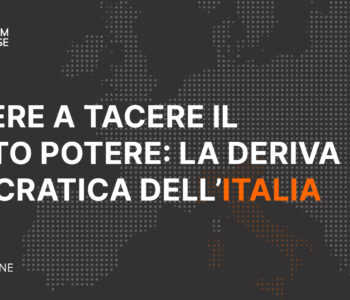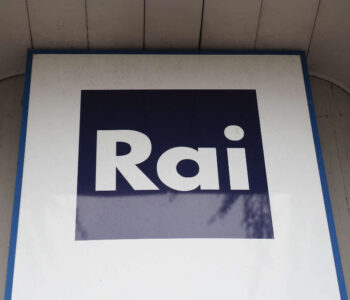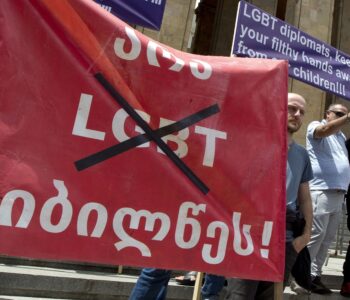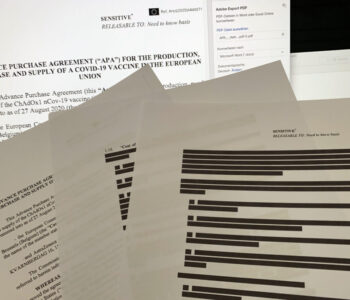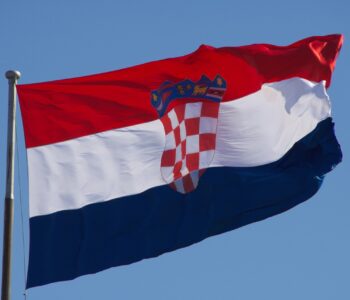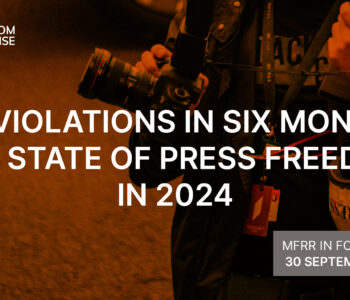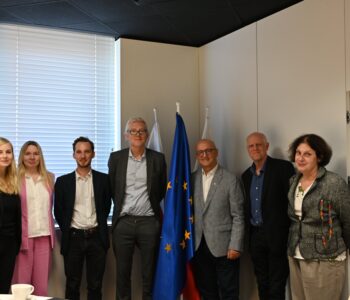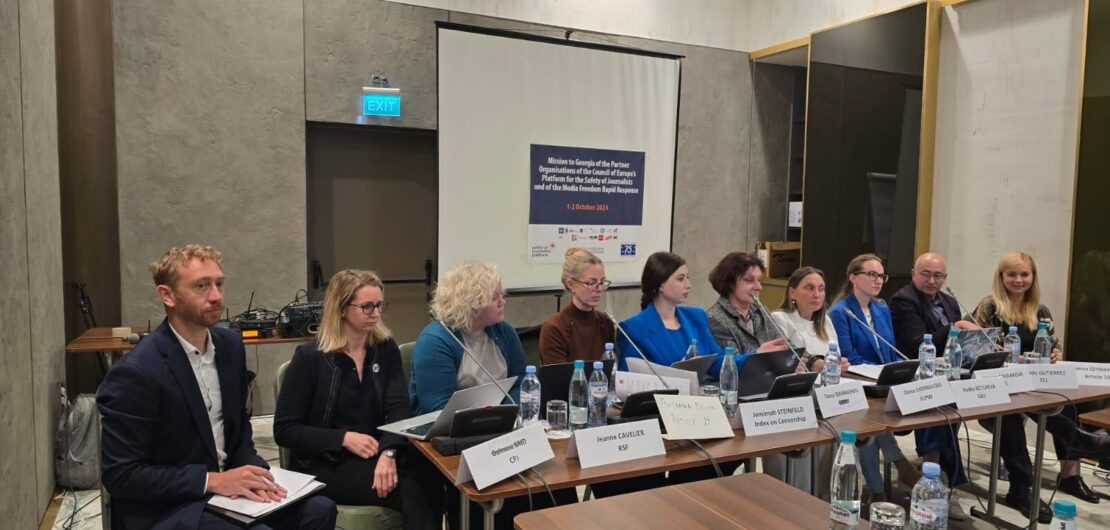 Library
Library
Findings of the Press Freedom Mission to Georgia
Press Freedom and the Safety of Journalists in Peril: Rising Polarization and a Climate of Fear – Findings of the Press Freedom Mission to Georgia
A fact-finding mission to Georgia by Council of Europe’s Safety of Journalists Platform and Media Freedom Rapid Response (MFRR) consortium reveals a troubling deterioration of press freedom, human rights violations, attacks on journalists, and concerns over media safety and legislative challenges ahead of elections.
The Mission of the Partner Organisations of the Council of Europe’s Safety of Journalists Platform and members of the Media Freedom Rapid Response (MFRR) consortium concluded a fact-finding mission to Georgia. The aim of the mission was to collect information on Georgia’s implementation of its freedom of expression and freedom of the media commitments, including in relation to the on-going election campaign.
This statement presents interim findings of the mission.
We have just concluded a two-day mission to Georgia. Before diving into the concrete findings of the mission, we want to say that we have observed the deterioration of press freedom as well as human rights at large in Georgia. It has been made clear to us that a wide range of tools and mechanisms are used to discredit and curtail dissenting voices, including those of independent journalists. We want to once again declare our full support and solidarity with the journalists, media, press freedom, and civil society organizations. We came with concerns about media freedom, but we were appalled by what we heard.
Media situation ahead of the election
Exchanges with journalists, civil society, and political and institutional leaders bear witness to a democratic backsliding and human rights violations that go far beyond the erosion of media pluralism and violations of press freedom. Civil society as a whole is facing an illiberal drift, characterized by a weakening of democratic checks and balances.
Concerns over recent legislation
The representatives of journalists’ organizations, media, and civil society alike heavily criticized the recently passed law on ‘Transparency of Foreign Influence’ and ‘Law on the Protection of Family Values and Minors’. They cited obstacles to the normal functioning of media outlets and media rights organizations, which are obliged to register under the foreign influence law if they receive at least 20 percent funding from abroad. They noted that only a small number of CSOs and one media outlet had so far consented to register. Both laws are perceived as tools of the executive and the ruling party for exerting pressure on the media.
When questioned about this, a representative from the ruling Georgian Dream party did not fully address our concerns. Even if not yet fully implemented, the law on Transparency of Foreign Influence has already had a significant chilling effect on CSOs and media outlets. The law already leads to self-censorship, intimidation of journalists’ sources, and a hostile environment, preventing journalists from reporting from the field.
All interlocutors have complained about polarization of the media sphere. The lack of political debates between opposing parties exacerbates this division. The Mission recommends that political actors, public figures, and parties should abstain from fuelling it and refrain from ostracizing societal groups and public figures.
Safety of Journalists: A Feeling of Fear and Exodus from the Profession
Our meeting with the stakeholders reinforced the picture, which was mentioned in the previous reports. Journalists are attacked physically, verbally, legally, and financially. Journalism has become a dangerous occupation in Georgia.
Journalists are concerned about their safety to such a degree that some of them take chaperones to journalistic assignments. Representatives of several outlets noted that journalists leave the industry, and some relocate abroad. Additionally, several media outlets reported that they were making arrangements to register their media abroad.
Besides physical assaults on journalists, numerous cases of intimidation of journalists were reported to the Mission. Threats, short-term detention, cases of alleged abuse of the administrative code, and targeted smear campaigns in social media were reported by journalists themselves and media rights organizations.
The interlocutors were also concerned about the misuse of national sentiments by naming journalists and media outlets as ‘anti-Georgian’. The Mission is concerned that the ‘foreign influence law’ pours fuel on the fire of a deeply polarized political environment and dramatically undermines journalist safety.
Impunity for Crimes and Intimidation of Journalists
Most of the organizers and perpetrators of physical assaults, threats, smear campaigns, or other pressure on journalists are not prosecuted. We observed that this impunity creates a hostile climate for journalists’ work. During the mission, we met with representatives of political parties, of the Public Defender’s Office and media. We raised the issue of impunity with them and were told that the existing means are insufficient or are insufficiently used to resolve the issue.*
Ever since the tragic events of July 2021, people who attacked journalists and the organizers of these heinous acts, as well as members of law enforcement allegedly responsible for violence against reporters, were not held accountable for attacks.
Public Service Media
In 2023, the Georgian Public Broadcaster’s (GPB) funding was reduced by amendments to the Broadcasting Law, and the funding mechanism of the GPB changed, from a fixed percentage of gross domestic product (GDP) to an annual allocation in the state budget. The amendments were proposed without prior assessment, without consultations with GBP, and without an open public debate with stakeholders and experts. Public Service Media in Georgia needs stable and predictable funding, which safeguards their independence.
SLAPP Lawsuits Against Media
Interlocutors reported that lawsuits concerning defamation against media are used as a tool by high-ranking politicians and businesspeople affiliated with the ruling party, less by private actors. Concerns about the judiciary system amplify concerns about these cases. At the same time, in order to prove innocence, journalists are indirectly pressured to reveal their sources.
Journalists in Exile
Some media outlets have already moved their staffers abroad and have spent their resources on registering their outlets abroad, especially during the campaign period and as an envisaged result of the enforcement of the law on Transparency of Foreign Influence.
Access to Information
Reportedly, a law on creating a body responsible for regulating access to information has remained a draft since 2014. However, even the existing norms of replies by public bodies to journalists’ requests within ten days are frequently not met. Reportedly, critical and investigative journalists have the most difficulty receiving replies to their requests.
The Mission recommends that the capacity of the body dealing with the implementation of the Law on Free Access to Information should be strengthened.
Rules are imposed which limit journalists’ presence in the parliament, and accreditation is used as a tool for curbing independent reporting. In 2024, journalists were not allowed in the Parliament during the vote on the Law on Transparency of Foreign Influence.
Recommendations
- Guarantee a safe and free working environment for journalists. Ensure that journalists can cover the pre-election period and elections without obstruction or interference.
- Pieces of media legislation that are not in line with international freedom of expression standards should be revised, and the Law on Transparency of Foreign Influence and the Law on Protection of Family Values and Minors must be repealed.
- Ensure the proper implementation of the media legal framework, with a particular focus on the law regarding Free Access to Information. Establish relevant bodies where necessary to support and oversee the effective enforcement of these laws.
- Foreign journalists who are in exile in Georgia must be allowed to work freely and not be denied access to the country.
Background
The mission comprised representatives from ARTICLE 19 Europe, Committee to Protect Journalists (CPJ), the European Broadcasting Union (EBU), the European Federation of Journalists (EFJ), the European Centre for Press and Media Freedom (ECPMF), Index on Censorship, the International Press Institute (IPI), the Justice for Journalists Foundation, and Reporters Without Borders (RSF).
On the 1st and 2nd October 2024, the Mission met with the Chief of Staff of the Speaker of the Parliament of Georgia, the Communications Commission (the Georgian media regulator), the Office of the Public Defender of Georgia, representatives of the public service broadcaster GBP, representatives of political groups and MPs, representatives of civil society organizations, journalists, editors of broadcast, printed press, and online media, and representatives of the international community. The Mission requested meetings with the Ministries of Justice and Culture as well as the Legal Affairs Committee of the Parliament. The Ministries could not meet the Mission; the Chief of Staff spoke on behalf of the Legal Affairs Committee.
The Partner Organizations and MFRR members held a press briefing on 2 October 2024.
The Platform for the Protection of Journalism and Safety of Journalists is a unique mechanism that helps dialogue between the governments and the organizations of journalists, with the aim of stopping violations to press freedom in the member states of the Council of Europe and enabling journalists to exercise their profession without the risk of compromising their safety.
Since 2015, the Platform facilitates the compilation and dissemination of information on serious concerns about media freedom and safety of journalists in Council of Europe member states, as guaranteed by Art. 10 of the European Convention on Human Rights.
* Paragraph last updated on 10.10.2024
The Media Freedom Rapid Response (MFRR) tracks, monitors, and reacts to violations of press and media freedom in EU Member States and Candidate Countries. This project provides legal and practical support, public advocacy, and information to protect journalists and media workers.
This statement was coordinated by the Media Freedom Rapid Response (MFRR), a Europe-wide mechanism which tracks, monitors and responds to violations of press and media freedom in EU Member States, Candidate Countries and Ukraine.
პრესის თავისუფლება და ჟურნალისტების უსაფრთხოება საფრთხეშია, იზრდება პოლარიზაცია და შიშის კლიმატი – პრესის თავისუფლების მისიის მთავარი მიგნებები
ევროპის საბჭოს ჟურნალისტთა უსაფრთხოების პლატფორმის პარტნიორმა ორგანიზაციებმა და მედიის თავისუფლების სწრაფი რეაგირების (MFRR) კონსორციუმის წევრებმა დაასრულეს ფაქტების დამდგენი მისია საქართველოში. მისიის მიზანი იყო ინფორმაციის შეგროვება საქართველოში გამოხატვის თავისუფლებისა და მედიის თავისუფლების ვალდებულებების შესრულების ნაწილში, მათ შორის, მიმდინარე საარჩევნო კამპანიასთან დაკავშირებით.
ეს განცხადება წარმოადგენს მისიის შუალედურ დასკვნებს.
ჩვენ, პრესის თავისუფლების, გამოხატვის თავისუფლების და ჟურნალისტების საერთაშორისო ორგანიზაციებმა, ახლახანს დავასრულეთ ორდღიანი მისია საქართველოში. მისიის დროს ჩვენთვის აშკარა გახდა, რომ საქართველოში პრესის თავისუფლებისა და, ზოგადად, ადამიანის უფლებების მდგომარეობა მკვეთრად გაუარესებულია. ასევე ნათელი გახდა, რომ საქართველოში გამოიყენება მექანიზმების და ბერკეტების ფართო სპექტრი დამოუკიდებელი და კრიტიკული აზრის დისრედიტაციისა და ჩახშობისათვის.
გვინდა, კიდევ ერთხელ გამოვუცხადოთ ჩვენი სრული მხარდაჭერა და სოლიდარობა ჟურნალისტებს, მედიას, პრესის თავისუფლებაზე მომუშავე და სამოქალაქო საზოგადოების ორგანიზაციებს. ჩვენ შეძრწუნებული ვართ იმით, რაც მოვისმინეთ მისიის ფარგლებში პრესის თავისუფლებისა და გამოხატვის თავისუფლების, ასევე ჟურნალისტების უფლებების დაცვასთან დაკავშირებით.
მედიაში არსებული მდგომარეობა წინასაარჩევნო პერიოდში
ჩვენი საუბრები სამოქალაქო საზოგადოების, მედიის და პოლიტიკური პარტიების წარმომადგენლებთან მოწმობს დემოკრატიულ უკუსვლას და ადამიანის უფლებების უპატივცემულობას საქართველოში, ასევე მედიის პლურალიზმის ეროზიას და პრესის თავისუფლების სერიოზულ რღვევას. სამოქალაქო საზოგადოება მთლიანად დგას მზარდი ავტორიტარიზმის წინაშე, რომელიც ხასიათდება შეკავებისა და გაწონასწორების სისტემის შესუსტებით.
ბოლოდროინდელი კანონმდებლობა საფრთხეს უქმნის პრესის თავისუფლებას
იმ ჟურნალისტთა ორგანიზაციების, მედიისა და სამოქალაქო საზოგადოების წარმომადგენლებმა, რომელსაც პარტნიორი ორგანიზაციები მისიის ფარგლებში შევხვდით, მწვავედ გააკრიტიკეს ბოლო დროს მიღებული კანონები “უცხოური გავლენის გამჭვირვალობის შესახებ“ და „ოჯახური ღირებულებებისა და არასრულწლოვანის დაცვის შესახებ“. მათ დაასახელეს ის დაბრკოლებები, რომლებიც მედიის და მედიის უფლებადამცველი ორგანიზაციების ნორმალურ ფუნქციონირებას ხელს უშლის. კანონი “უცხოური გავლენის გამჭვირვალობის შესახებ“ ავალდებულებს მედიას და არასამთავრობო ორგანიზაციებს, დარეგისტრირდნენ უცხოური გავლენის გამტარ ორგანიზაციებად. ორგანიზაციებმა, რომლებსაც მისიის ფარგლებში შევხვდით, აღნიშნეს, რომ სამოქალაქო საზოგადოების ორგანიზაციების მხოლოდ მცირე ნაწილმა და ერთმა მედიასაშუალებამ გაიარა რეგისტრაცია. ორივე კანონი აღიქმება როგორც ძლიერი ბერკეტები ხელისუფლებისთვის მედიაზე ზეწოლის განხორციელებისთვის.
აღნიშნულთან დაკავშირებით მმართველი პარტია „ქართული ოცნების“ წარმომადგენელმა ჩვენს შენიშვნებს სათანადოდ არ უპასუხა. მიუხედავად იმისა, რომ უცხოური გავლენის გამჭვირვალობის შესახებ კანონის იმპლემენტაცია ჯერ სრულად არ განხორციელებულა, მას უკვე ჰქონდა მნიშვნელოვანი მსუსხავი ეფექტი სამოქალაქო საზოგადოების ორგანიზაციებსა და მედია საშუალებებზე.
კერძოდ, კანონი უკვე იწვევს თვითცენზურას, წნეხს ჟურნალისტების წყაროებზე და მტრულ გარემოს, რაც აფერხებს ჟურნალისტების საქმიანობას.
ორგანიზაციები და ჟურნალისტები, რომელსაც მისიის ფარგლებში შევხვდით, წუხილს გამოთქვამდნენ მედიის პოლარიზაციასთან დაკავშირებით. დაპირისპირებულ მხარეებს შორის პოლიტიკური დებატების ნაკლებობა ამ პოლარიზაციას ამძაფრებს. მისია რეკომენდაციას გასცემს, რომ პოლიტიკურმა აქტორებმა, საჯარო პირებმა და პარტიებმა თავი შეიკავონ პოლარიზაციის გაძლიერებისგან და თავი შეიკავონ საზოგადოებრივი ჯგუფებისა და საჯარო პირების დისკრედიტაციისგან.
ჟურნალისტების უსაფრთხოება: შიშის კლიმატი და ჟურნალისტების მიერ პროფესიოული საქმიანობისგან თავის შეკავება
ჩვენმა შეხვედრამ დაინტერესებულ მხარეებთან გააძლიერა სურათი, რომელიც წინა ანგარიშებში იყო აღწერილი. ჟურნალისტებს თავს ესხმიან ფიზიკურად, სიტყვიერ, სამართლებრივად და ფინანსურად.
ჟურნალისტიკა საქართველოში სახიფათო პროფესიად იქცა.
ჟურნალისტები იმდენად წუხან იმ საფრთხეებით, რომლებიც მათ უსაფრთხოებას ეხება, რომ ზოგიერთი მათგანს თანხმლები პირები ახლავს თან პროფესიული საქმიანობის შესრულების დროს. რამდენიმე გამოცემის წარმომადგენელმა აღნიშნა, რომ უფრო და უფრო მეტი ჟურნალისტი ტოვებს ინდუსტრიას. ბევრი ჟურნალისტი კი ქვეყანას საერთოდ ტოვებს. გარდა ამისა, რამდენიმე მედიასაშუალებამ გვითხრა, რომ ისინი საკუთარ კომპანიას საზღვარგარეთ არეგისტრირებენ.
ჟურნალისტებზე ფიზიკური თავდასხმების გარდა, მისიამ დაფიქსირდა ჟურნალისტების დაშინების უამრავი შემთხვევა. მუქარა, მოკლევადიანი დაკავება, ადმინისტრაციული კოდექსის სავარაუდო ბოროტად გამოყენების შემთხვევები და მიზანმიმართული ცილისწამების კამპანიები სოციალურ მედიაში დაფიქსირდა თავად ჟურნალისტებისა და მედიის უფლებადამცველი ორგანიზაციების მიერ.
აქტორები, რომლებსაც მისიაში მონაწილე პარტნიორები შეხვდნენ, ასევე შეშფოთებულნი იყვნენ ჟურნალისტების და/ან მედიის “ანტიქართულად” მოხსენიებით ეროვნული სენტიმენტების ბოროტად გამოყენების გამო. მისია შეშფოთებულია, რომ “უცხოური გავლენის კანონი” ძლიერად პოლარიზებულ პოლიტიკურ გარემოში ცეცხლზე ნავთს ასხამს და ჟურნალისტების უსაფრთხოებას ძირს უთხრის.
დაუსჯელობა და ჟურნალისტების დაშინება
ჟურნალისტებზე ფიზიკური თავდასხმის, მუქარის, ცილისწამების ან სხვა სახის ზეწოლის ორგანიზატორებისა და ჩამდენი პირების უმეტესობა დასჯილი არ არის. ეს დაუსჯელობა, მტრულ კლიმატს ქმნის ჟურნალისტების საქმიანობისთვის.
მისიის ფარგლებში შევხვდით პოლიტიკური პარტიების, სახალხო დამცველის ოფისისა და მედიის წარმომადგენლებს. ამ შეხვედრების დროს, ჩვენ წინ წამოვწიეთ დაუსჯელობის საკითხი, თუმცა არ მიგვიღია მკაფიო პასუხი, რა და როგორ შეიძლება გაკეთდეს იმისათვის, რომ დავეხმაროთ ჟურნალისტებს თავდასხმის დროს.
2021 წლის ივლისის ტრაგიკული მოვლენებიდან მოყოლებული, ჟურნალისტებზე ძალადობის ორგანიზატორები და შემსრულებლები, ისევე როგორც სამართალდამცავი ორგანოების წევრები, რომლებიც, სავარაუდოდ, პასუხისმგებელნი არიან ჟურნალისტებზე ძალადობისთვის, პასუხისმგებაში არ ყოფილან მიცემული.
საზოგადოებრივი მაუწყებელი
2023 წელს საქართველოს საზოგადოებრივი მაუწყებლის დაფინანსება მაუწყებლობის შესახებ კანონში ცვლილებებით შემცირდა და საზოგადოებრივი მაუწყებლის დაფინანსების მექანიზმი შეიცვალა მთლიანი შიდა პროდუქტის (მშპ) ფიქსირებული პროცენტიდან სახელმწიფო ბიუჯეტში წლიურ ალოკაციებამდე. ცვლილებები წარდგენილი იყო წინასწარი შეფასების, საზოგადოებრივი მაუწყებლებელთან კონსულტაციებისა და დაინტერესებულ მხარეებთან და ექსპერტებთან ღია საჯარო დებატების გარეშე. საქართველოში საზოგადოებრივ მაუწყებელს სჭირდება სტაბილური და პროგნოზირებადი დაფინანსება, რაც მათ დამოუკიდებლობის დაცვას შესაძლებელს გახდის.
SLAPP-ები მედიის წინააღმდეგ
მისიაში მონაწილე აქტორებმა განაცხადეს, რომ მედიის წინააღმდეგ ცილისწამებასთან დაკავშირებული სასამართლო დავები იარაღად გამოიყენება მმართველ პარტიასთან დაკავშირებული მაღალი რანგის პოლიტიკოსებისა და ბიზნესმენების მიერ და ნაკლებად კერძო აქტორების მიერ. სასამართლო სისტემის დამოუკიდებლობასთან დაკავშირებული გამოწვევები ამ საქმეებთან დაკავშირებით შეშფოთებას აძლიერებს. ამავდროულად, იმისათვის, რომ ჟურნალისტებმა საკუთარი უდანაშაულობა დაამტკიცონ, ირიბად ექცევიან წნეხის ქვეშ, რომ საკუთარი წყაროები გაამხილონ.
დევნილობაში მყოფი ჟურნალისტები
ზოგიერთმა მედიასაშუალებამ თავისი თანამშრომლები საზღვარგარეთ უკვე გადაიყვანა და უცხოეთში დარეგისტრირებისთვის რესურსი დახარჯა, რაც არის უცხოური გავლენის გამჭვირვალობის შესახებ კანონის მიღებისა და აღსრულების პირდაპირი შედეგი.
ინფორმაციაზე წვდომა
ჩვენთვის მოწოდებული ინფორმაციის მიხედვით, კანონი ინფორმაციის ხელმისაწვდომობის რეგულირებაზე პასუხისმგებელი ორგანოს შექმნის შესახებ კანონპროექტად დარჩა 2014 შემდეგ. თუმცა, საჯარო უწყებების მიერ ჟურნალისტების ინფორმაციის წვდომაზე მოთხოვნის პასუხის გაცემის არსებული ნორმებიც ხშირად არ სრულდება. როგორც ჩვენთვის ცნობილი გახდა, კრიტიკულ და გამომძიებელ ჟურნალისტებს ინფორმაციის წვდომაზე მოთხოვნისას პასუხის მიღება ყველაზე მეტად უჭირთ.
მისია რეკომენდაციას გასცემს, გაძლიერდეს იმ ორგანოს უფლებამოსილება, რომელიც პასუხისმგებელია ინფორმაციის თავისუფალი ხელმისაწვდომობის შესახებ კანონის იმპლემენტაციაზე.
კანონები და წესები, რომლებიც ზღუდავს ჟურნალისტების შეშვებას პარლამენტში და აკრედიტაციის მოპოვებას და შენარჩუნებას, გამოიყენება როგორც დამოუკიდებელი გაშუქების შეზღუდვის საშუალება. 2024 წელს უცხოური გავლენის გამჭვირვალობის შესახებ კანონის კენჭისყრის დროს ჟურნალისტები პარლამენტში არ შეუშვეს.
რეკომენდაციები
- ჟურნალისტებისთვის უსაფრთხო და თავისუფალი სამუშაო გარემო უზრუნველყოფა. ჟურნალისტებს უნდა შეეძლოთ გააშუქონ წინასაარჩევნო პერიოდი და არჩევნები ხელის შეშლისა და ჩარევის გარეშე.
- მედიის კანონმდებლობის იმ ნაწილის გადახედვა, რომელიც არ შეესაბამება გამოხატვის თავისუფლების საერთაშორისო სტანდარტებს. უცხოური გავლენის გამჭვირვალობის შესახებ და ოჯახური ფასეულობებისა და არასრულწლოვანთა დაცვის შესახე კანონების გაუქმება.
- მედიის საკანონმდებლო ბაზის სათანადოდ იმპლემენტაცია, განსაკუთრებით კანონზე ინფორმაციის თავისუფალი ხელმისაწვდომობის შესახებ კანონის ნაწილში. საჭიროების შემთხვევაში, შესაბამისი ორგანოების შექმნა, რათა მხარი დაუჭირონ და გააკონტროლონ ამ კანონების ეფექტიანი აღსრულება.
- საქართველოში დევნილობაში მყოფი უცხოელი ჟურნალისტების
თავისუფლად მუშაობის შესაძლებლობა და ქვეყანაში შესვლაზე უარის თქმის პრაქტიკის დასრულება.
კონტექსტი
მისიას წარუძღვნენ ევროპის საბჭოს ჟურნალისტთა უსაფრთხოების პლატფორმის და მედიის თავისუფლების სწრაფი რეაგირების (MFRR) პარტნიორი ორგანიზაციები – მუხლი 19, ჟურნალისტთა დაცვის კომიტეტი (CPJ), ევროპის მაუწყებელთა კავშირი (EBU), პრესისა და მედიის თავისუფლების ევროპული ცენტრი (ECPMF) , ევროპის ჟურნალისტთა ფედერაცია, ინდექსი ცენზურაზე, პრესის საერთაშორისო ინსტიტუტი (IPI), ფონდი სამართლიანობა ჟურნალისტებისთვის (JFJ) და რეპორტიორები საზღვრებს გარეშე (RSF).
2024 წლის 1-ლ და 2 ოქტომბერს მისია შეხვდა საქართველოს პარლამენტის თავმჯდომარის აპარატის უფროსს, კომუნიკაციების კომისიას (მედიის მარეგულირებელი სტრუქტურა საქართველოში), საქართველოს სახალხო დამცველის აპარატს, საზოგადოებრივი მაუწყებლის წარმომადგენლებს, პოლიტიკური ჯგუფების წარმომადგენლებსა და დეპუტატებს, სამოქალაქო საზოგადოების ორგანიზაციების წარმომადგენლებს, მაუწყებლობის, ბეჭდვითი და ონლაინ მედიის ჟურნალისტებსა და რედაქტორს და საერთაშორისო საზოგადოების წარმომადგენლებს. მისიამ მოითხოვა შეხვედრები იუსტიციისა და კულტურის სამინისტროებთან, ასევე პარლამენტის იურიდიულ საკითხთა კომიტეტთან, მაგრამ სამინისტროებთან შეხვედრები არ შემდგარა. სანაცვლოდ, პარლამენტის თავმჯდომარის აპარატის უფროსმა იურიდიულ საკითხთა კომიტეტის სახელით ისაუბრა.
ევროპის საბჭოს ჟურნალისტთა უსაფრთხოების პლატფორმისა და მედიის თავისუფლების სწრაფი რეაგირების (MFRR) წარმომადგენლება პრესკონფერენცია მისიის დასასრულს 2024 წლის 2 ოქტომბერს გამართეს.
ჟურნალისტიკის დაცვისა და ჟურნალისტთა უსაფრთხოების პლატფორმა არის უნიკალური მექანიზმი, რომელიც ეხმარება მთავრობებსა და ჟურნალისტთა ორგანიზაციებს შორის დიალოგს. პლატფორმის მიზანია პრესის თავისუფლების დარღვევების აღკვეთა ევროპის საბჭოს წევრ ქვეყნებში და ჟურნალისტებისთვის საშუალების მიცემა საკუთარი საქმიანობა უსაფრთხოებასთან დაკავშირებული რისკების გარეშე შეასრულონ.
2015 წლიდან პლატფორმა ხელს უწყობს ინფორმაციის შეგროვებას და გავრცელებას ევროპის საბჭოს წევრ ქვეყნებში სერიოზული გამოწვევების შესახებ, რომლებიც უკავშირდება მედიის თავისუფლებისა და ჟურნალისტების უსაფრთხოებას, რაც გარანტირებულია ადამიანის უფლებათა ევროპული კონვენციის მე-10 მუხლით.
სწრაფი რეაგირება მედია თავისუფლებისთვის (MFRR) არის მექანიზმი, რომელიც მიზნად ისახავს აღმოაჩინოს, დააკვირდეს და რეაგირება მოახდინოს პრესისა და მედიის თავისუფლების დარღვევებზე ევროკავშირის წევრ და კანდიდატ ქვეყნებში. პროექტი მოიცავს სამიზნე ორგანიზაციებისა და ინდივიდებისთვის სამართლებრივ და პრაქტიკულ დახმარებას, საჯარო ადვოკატირებასა და ინფორმაციას ჟურნალისტებისა და მედიის მუშაკების დასაცავად.

